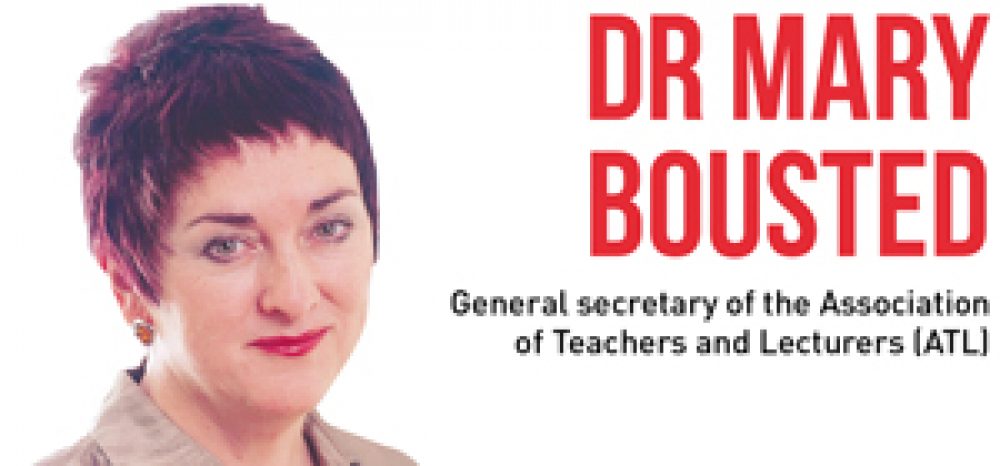The Conservatives will control the Department for Education, after today’s outcome of the general election which saw the party gain a majority of seats in the House of Commons. Dr Mary Bousted, general secretary of the Association of Teachers and Lecturers, gives her view on what to expect.
The next Conservative government will pursue, with added zeal, its drive to increase the number of academies and free schools. Any school given a “satisfactory” Ofsted grade will be forced into an academy chain as the Conservatives wage their “war on mediocrity”.
Weak local accountability will result in further “gaming” of the admission code by some schools, to the disadvantage of poor children whose parents are less able to wade through the complexities of school choice procedures.
Concerns over school funding are going to become even more acute as higher National Insurance and pension contributions are likely to take away 5 per cent of school budgets. At a time of rising student numbers, teachers and support staff face redundancy because of financial pressures. Without urgent action to protect and increase funding students will see bigger class sizes, fewer teachers and lecturers, and a reduced curriculum.
Expect further deregulation of teachers’ pay through further dismantling of what is left of the national pay structure accompanied by a sharper in-school focus on performance-related pay – which, in a time of financial constraint, will be used to depress pay for the majority of teachers.
A threatened teacher recruitment and retention crisis will become a reality. School leaders will explore every avenue to put teachers in front of pupils, but the challenge to recruit and retain teachers across a wide range of subjects will become ever more pressing. Those schools in which teachers’ work is valued, and which achieve a reasonable work-life balance, will find themselves better placed in the recruitment battle.
Local authorities will find it increasingly impossible to exercise their duty to provide sufficient school places for the growing pupil population. LGA forecasts predict that by 2019, 49 of the 152 local authorities will have more secondary-age pupils than school places while 130,000 more primary places, the equivalent of 4,750 classes, are needed by 2017.
Given the likely scale of cuts to local authority funding, and the extraordinary measures councils have already taken to respond to the shortage of pupil places, this is a problem which looks only to get worse. It is, potentially, the biggest challenge to the incoming government. Parents do not forgive politicians when their child does not get a school place or is sent home because there is no teacher to teach them.
Unless, and until, radical action is taken to reform Ofsted teachers and school leaders will continue to work in a climate of fear which drives excessive and unnecessary workload and a limiting of ambition amongst the profession. In particular the effective knowledge and use of formative assessment, which should be the bedrock of effective classroom practice, will continue to decline – to the detriment of pupil learning and achievement.
Changes to qualifications at GCSE and A levels, and reliance on timed linear exams as the main mode of summative assessment, will cause huge fluctuations in standards and further depress the achievement of the most socially and economically deprived pupils. Price Waterhouse Cooper will not be the only leading firm to change its recruitment methods to identify a much wider range of employability skills than the new qualifications can support and reliably assess. The CBI will continue to call for broad and balanced assessment of knowledge and skills which should go beyond memorisation, rote learning and writing.
The most serious consequence of an already very depressing list, however, is the increase we are going to see in child poverty – with all that entails for decreasing social mobility and educational achievement.
In the words of the Social Mobility and Poverty Commission: “The impact of welfare cuts and entrenched low pay will bite between now and 2020. Poverty is set to rise, not fall. We share the view of those experts who predict that 2020 will mark not the eradication of child poverty but the end of the first decade in recent history in which absolute child poverty increased.”







I’m just glad that I got ‘out’ at the end of last year after about 3 years of seriously thinking about it I finally did it. I am angry because I feel ‘the job’ in the end ‘dictated my life’ and certainly has not helped my mental health at all. I don’t know how anyone does the job now with the amount of negativity and fear that has been mounting over the last 10 years. I just need to work out how to forget my dream job and try to move on in something else and try and hope that my own 11 year old gets through the secondary system unscathed.
I think we need to start careful planning now on what will be needed and supported to rescue and redevelop education after the 2020 election. It’s no use Labour offering a fundamental change at the last minute only for teachers to say “We can’t cope with change” – and vote Tory again. We can’t continue like this but need to develop reform that teachers want and can support.
I’m retired. I loved teaching but really do not envy those still in the profession their next five years.
So sad that I feel better by having retired. There is a desperate need for government to talk to teachers and understand the reality of learning and social effects of change and austerity approach.